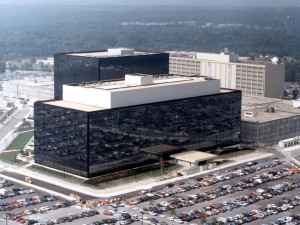 Two California lawmakers this week introduced a bill that would prohibit state agencies and corporations from providing material support to the National Security Agency.
Two California lawmakers this week introduced a bill that would prohibit state agencies and corporations from providing material support to the National Security Agency.
The so-called Fourth Amendment Protection Act, sponsored by State Senators Ted Lieu (D-Torrance) and Joel Anderson (R-San Diego) would bar state and locally-owned utilities from providing water and electricity to NSA facilities in California.
Under the proposed legislation, any information gathered without a warrant by the NSA and provided to California law enforcement authorities would be inadmissible in state courts.
The bill would also block public universities from hosting NSA recruiting or research facilities, and sanction private companies that provide material support to the agency.
“The President and Congress to date have done nothing to rein in the NSA, and it is time for states to make their views known about the agency’s warrantless collection of phone metadata records,” Sen. Lieu said Tuesday.
“The NSA is deliberately violating the Fourth Amendment rights of all Americans, including more than 38 million Californians,” Lieu contended, adding that the legislation would ensure that state-funded public resources aren’t used to aid NSA warrantless data collection programs.
There are no NSA facilities in California and the bill would prevent the U.S. spy agency from opening a facility or receiving any state help in the future, he said.
Lieu compared the bill to the Trust Act, which took effect on Jan. 1. Among other things, that state law limits cooperation between state and federal law enforment agencies on immigration matters. For instance, the law requires that state agencies only provide the U.S. Immigration and Customs Enforcement agency information on illegal immigrants who have committed serious crimes.
Lieu said the bill has attracted the attention of legislators in other states.
For instance, Arizona State Senator Kelli Ward, R-Lake Havasu City, last month announced plans to introduce an identical bill in Arizona state legislature.
The California and Arizona bills are modelled on a template developed by the Tenth Amendment Center, an advocacy group focused on state and individual sovereignty issues.
The advocacy group is working to convince lawmakers in various states to create laws that would make it difficult for the NSA to operate in that state. Michael Maharrey, the Tenth Amendment Centre’s communication director, said on Tuesday that two other states, Utah and Washington, are considering similar legislation.
Also, he said, lawmakers in Kansas and Missouri have introduced bills that would prohibit information gathered without a warrant by the NSA to be used by state law enforcement agencies or courts.
The Utah bill aims to prohibit state and local agencies from providing water to a giant new NSA data centre near Salt Lake City.
The facility reportedly requires 1.7 million gallons of water a day to cool the massive supercomputers and storage systems used to collect and analyse surveillance data from around the world. The Jordan Valley River Conservancy District, a state-owned entity, is currently supposed to provide water to the facility.
“Things move fast as the legislatures gear up for the 2014 session, as the introduction of the bill in California illustrates,” Maharrey said.
Ward last month said that her plans to introduce the bill were being driven by her constituents in Arizona.
“Of course, we can’t physically bar the NSA from operating here. But we can refuse any state cooperation with the agency as long as it insists on violating the Constitution,” she said. “The idea is to make it difficult to impossible for the NSA to do what it wants to do. Banning our state from participating in programmes that the NSA is currently carrying out will help make that happen.”





